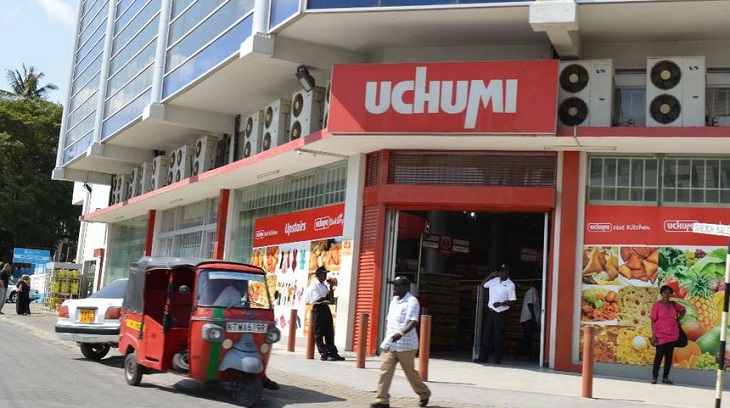Kenya’s listed retailer, Uchumi Supermarket Ltd (NSE: UCHM) has agreed with its Board of Directors the restructuring of its debt by way of company voluntary arrangement.
The Board approved a company voluntary arrangement in a meeting held on 20 March 2019 with John Karani, the Chairman in a public announcement saying the retailer needed to “De-leverage the business to reduce financial strain, improve liquidity and achieve operational normalcy.”
The Board said the arrangement is subject to the approval at a meeting with the creditors to be convened in April – within 30 days from March 20 March 2019.
“The creditors’ plan presents the most sustainable and viable route to normalcy while taking care of our suppliers, lenders, staff, shareholders and other stakeholders’ interests. This plan demonstrates our commitment towards our stakeholders and we urge everyone to work with us to return Uchumi to its glory days,” said Uchumi’s Chief Executive Mohamed Mohamed.
In the proposed deal filed in court, the cash strapped retailer wants creditors to take a 7% cut on their debt equivalent to Ksh 2.5 billion. This is as a result of the retailer entering into an agreement with Jewel Complex Limited to sell its land in Kasarani for KSh2.8 billion with KSh330 million deposit already paid.
“These assets will be the main source of funding required to settle the company’s liabilities. However since the amount owed by the company is higher than the expected proceeds, a debt restructuring is necessary which will entail negotiating for interest waivers, an extension on the Government loan moratorium and haircut,” Uchumi Interim Advisor Owen Koimburi said in court filings.
Mr. Owen Koimburi, a licensed insolvency practitioner has been appointed as the provisional supervisor in respect of the proposed company voluntary arrangement under section 625(2) of the Insolvency Act 2015.
If approved, “It will provide a basis for re-engagement of suppliers on the resumption of supplies and on the settlement of outstanding debt. It is expected that this will support the resumption of normal business in the operating branches.”
Uchumi owes Chandaria Industries Ksh 69 million, Equatorial Nut Processors Ltd Ksh 21 million, Githunguri Dairy, Interconsumer Products Ltd and Professional Marketing Services Ltd are owed 45, 38 and 4 million shillings respectively.
The government through the National Treasury holds a 14.67% stake in the firm making it the second-largest shareholder after Jamii Bora Bank which holds 14.90%.
In July 2017, the government had disbursed Ksh 500Mn from the Ksh 1.8Bn bailout package offered to the retailer but insisted it will carry out thorough due diligence before releasing further funds.
Company Voluntary Arrangements
Company Voluntary Arrangements were also introduced in Kenyan law by the Insolvency Act, No. 18 of 2015. This arrangement is entered into when a company is insolvent and the directors, administrator or liquidator as the case may be, make a proposal to the company’s shareholders and its creditors on the best way to save the company from liquidation. However, there are restrictions placed on Company Voluntary Arrangements, with the arrangement not being an option in the case of the following:
banking and insurance companies,
companies under administration or liquidation,
a company in respect of which a voluntary arrangement has been carried out,
companies in public-private partnerships, and
companies with liabilities of over Kshs 1 bn.
The Directors must appoint a person, who must be a licensed insolvency practitioner, to supervise the company for the process of implementing the voluntary arrangement. The Supervisor must within thirty days of the proposal or a longer period allowed by court, submit a report to the court detailing their opinion on the viability of the proposal and whether a meeting of the creditors should be called to vote on it and the date and time of such a meeting.
On the date of the creditors’ meeting, the creditors shall appoint a chairperson who shall divide the creditors into groups of secured creditors, unsecured creditors and preferential creditors. The Creditors shall then vote either to approve the proposal as is, approve it with modifications or reject it altogether. The proposal is approved if voted for by a majority of the members and a majority of each group present at the meeting. The proposal if approved shall be binding on the company and the creditors.
Source: Cytonn Investments’s on Company Voluntary Arrangements
Updates on paragraph 4 & 5




